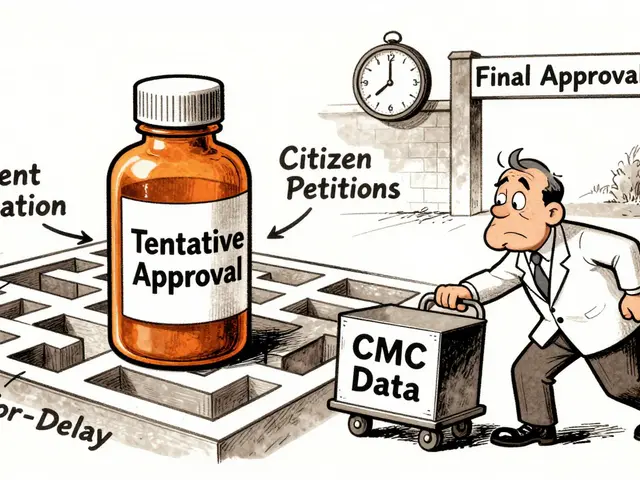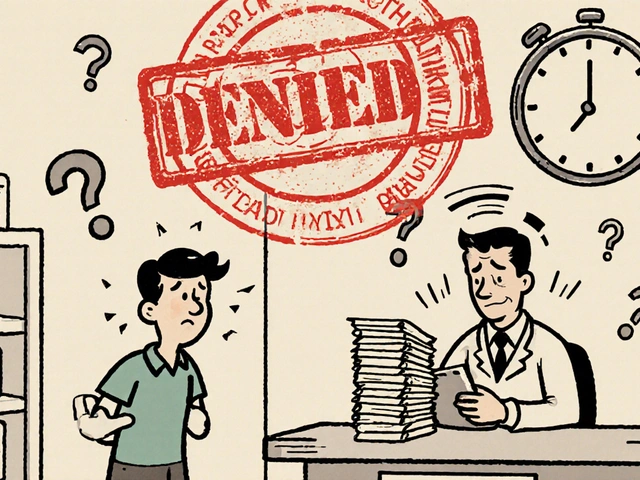Obesity Explained: What It Is and How to Take Control
Ever wonder why the scale seems stuck despite the effort you put in? Obesity isn’t just a number on a scale – it’s a mix of genetics, diet, activity, and even the medicines we take. Understanding the why helps you pick the right moves to feel better, not just lighter.
First off, obesity means having excess body fat that can harm health. The medical cut‑off is a body‑mass index (BMI) of 30 or higher, but the real issue is how that weight affects your heart, blood sugar, and joints. Carrying extra pounds raises the risk of type 2 diabetes, high blood pressure, sleep apnea, and even certain cancers. Knowing these risks turns the abstract idea of “extra weight” into something tangible you can act on.
Key Drivers You Can Spot in Daily Life
Most people think diet alone causes obesity, but the picture is broader. Processed foods loaded with sugar and unhealthy fats are easy targets, yet stressful jobs, lack of sleep, and medications like steroids or certain antipsychotics also add calories without you noticing. Even genetics set a baseline – some families gain weight more easily. The good news? Most of these factors are tweakable.
Take a look at your routine. Do you grab a sugary snack while scrolling on your phone? That quick burst of energy often spikes insulin and stores fat. Are you sitting for hours at a desk? Light activity, like a short walk every hour, counters the slowdown in metabolism that comes from prolonged sitting. Small, consistent changes add up faster than a big, unsustainable overhaul.
Practical Steps to Manage Weight
1. Focus on whole foods. Swap white bread for whole‑grain, choose fruit over candy, and add a protein source to each meal. Protein keeps you full longer, so you eat less overall.
2. Move without the gym. You don’t need a membership to burn calories. Try stairs instead of elevators, park farther from the entrance, or do a 10‑minute body‑weight routine at home. Consistency beats intensity for most people.
3. Mind your meds. Some prescriptions, like certain antidepressants or hormone therapies, can promote weight gain. Talk to your doctor about alternatives or dosage adjustments if you suspect your medication is a factor.
4. Track, but don’t obsess. Write down meals for a week or use a simple phone app. Seeing patterns helps you spot hidden calories, like extra sauces or “free‑refill” drinks.
5. Consider medical help. For some, lifestyle tweaks aren’t enough. FDA‑approved obesity medications, such as GLP‑1 receptor agonists, can support weight loss when combined with diet and exercise. Always discuss benefits and side effects with a healthcare professional.
Remember, weight loss isn’t a sprint. Aim for a steady 0.5‑1 kg per week – that’s realistic and keeps your body from fighting back. Celebrate non‑scale victories too, like better sleep, higher energy, or ease in daily activities.
Finally, keep the conversation going. Talk to friends, family, or a health coach about your goals. Sharing challenges and wins makes the journey less lonely and more motivating.
Obesity may feel like a tough opponent, but with clear knowledge of its causes and a toolbox of simple actions, you can start shifting the balance toward a healthier you.

Obesity and Clopidogrel Effectiveness: What Changes, What the Evidence Shows, and What To Do
- By : Tamsin Riverton
- Date : Sep 1 2025
Does obesity blunt clopidogrel? Clear, evidence-backed guide on mechanisms, outcomes, testing, and smarter antiplatelet choices in 2025.




